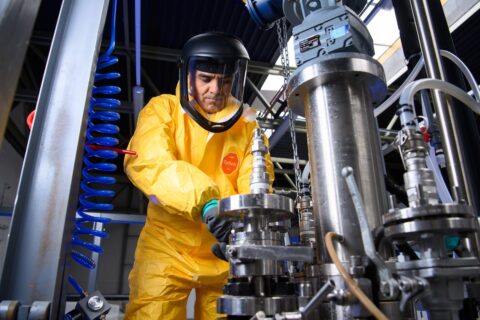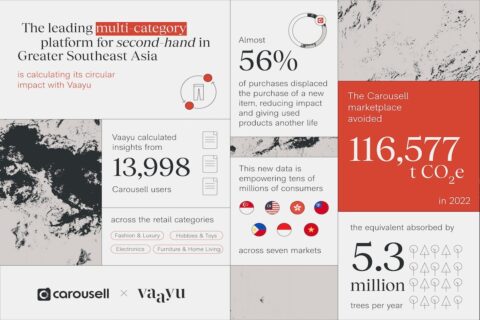
A pioneering hydrogen car manufacturer based in Powys has secured funding to launch the Circular Economy Innovation Centre for Wales. Known as Circular Revolution, the new centre will be the first-ever business-led project of its kind, aiming to engage with organisations to see how the circular economy could work successfully in practice.
Launched by Riversimple, the centre is being designed and delivered in partnership with Swansea University and the University of Exeter. The £2.3M operation is part-funded by the European Regional Development Fund through the Welsh Government, which is contributing over £1.5M.
The Riversimple business model is itself circular in principle, with the carmaker’s clean slate concept designed to minimise resource consumption, as evidenced in an all-inclusive sale-of-service business model.
When its cars go into production, Riversimple is planning to offer them to customers on a subscription basis, where a monthly fee will cover everything including the car, maintenance, insurance and all fuel.
This approach will enable Riversimple to bring new technology to market and make efficiency profitable without asking the customer to pay a premium for it. The Circular Revolution will take the same thinking up into the supply chain to see how it could work when faced with real-life business challenges.
Run out of a dedicated centre at Riversimple’s HQ in Llandrindod Wells, the Circular Revolution will deliver two core programmes of activity.
The first is an outreach programme for businesses in West Wales and the Valleys who are keen to engage with more sustainable products, services and business models. Swansea University and the University of Exeter will be supporting companies in discovering the latest practices and exploring how to embed circular principles.
The second programme of activity is pioneering research and innovation aimed at tackling the specific challenges businesses face in adopting a sale of service circular model. Six pilot projects will focus on developing procurement, computation systems, and legal frameworks.
Speaking about the importance of the initiative on behalf of the Welsh Government, Lesley Griffiths, the Minister for Environment, Energy and Rural Affairs, said:
“As we move Wales towards becoming a net-zero nation, and progress our transition towards a circular economy, it is vital we do all we can to encourage businesses of all sizes to adopt more sustainable business models and services. Everyone has a part to play in making Wales a fairer and more sustainable nation, and businesses are no exception.
“As such, I’m very pleased to welcome the launch of Circular Revolution, a new approach at the forefront of innovation to provide businesses with the advice, guidance and support as they look to change their business models and face new challenges — and I am especially pleased to see the keenness and enthusiasm of the businesses involved.”
Circular Revolution will support Wales to develop sustainability in West Wales and the Valleys and beyond, working to build the green economy. The European Regional Development Fund is helping to create jobs, support business and raise skills in Wales through this operation.
Commenting on the benefits to Wales, Dr Gavin Bunting, Associate Professor from Swansea University, said:
“With businesses increasingly aware of the need to embed sustainability at the heart of organisations, the Circular Revolution provides an excellent opportunity to connect Welsh industry to the expertise in our universities, creating new opportunities and enabling Wales to be at the forefront of circular economy.”
Dr Bunting chairs the Circular Economy Research and Innovation Group for Wales (CERIG), which enables collaboration on the Circular Economy across all Welsh HE institutions.
Partnering in the Circular Revolution alongside Riversimple and Swansea University is the University of Exeter, bringing specialist knowledge in circular economy (CE) research. Formally launched by Dame Ellen MacArthur in 2018, its Exeter Centre for the Circular Economy (ECCE) is one of the largest interdisciplinary CE-focused research groups in the UK with expertise in circular design, innovation and business modelling.
Addressing the issues facing business as it tackles the circular transition, Dr Fiona Charnley, Associate Professor from the University of Exeter, said:
“The Circular Economy offers a compelling framework for systems change that, whilst simple in narrative is often difficult to implement, particularly for smaller organisations. The Circular Revolution offers a unique opportunity for organisations in in West Wales and the Valleys to engage with circular innovation and learn from industrial and academic best practice.”
Embracing the challenge, Riversimple Director, Fiona Spowers concluded:
“It is a privilege to be afforded this opportunity to host the centre and drive circular thinking forward globally from Wales. While there is a lot of enthusiasm for the concept of circular business models, they are hard to adopt and embrace fully. With Circular Revolution’s pilot programme, we are uniquely positioned to trial, test and refine this research on a real small business in Wales, Riversimple.”
Elected in 2017 as one of the Emerging Innovators by the Ellen MacArthur Foundation, Riversimple is also a member of the World Economic Forum Circular Cars Initiative.
Further Reading:
- More about Riversimple;
- More about the Circular Economy Research and Innovation Group for Wales (CERIG);
- More about the the Exeter Centre for the Circular Economy (ECCE) at Exeter University;
- More on the Ellen MacArthur Foundation;
- More on the World Economic Forum Circular Cars Initiative;
- Also on SustMeme, Circular economy strategies can cut global emissions by 39%;
- Also on SustMeme, World’s first hydrogen double-decker bus unveiled in Aberdeen;
- Also on SustMeme, Hydrogen: A rising balloon, or bursting bubble?
>>> Do you have sustainability news to broadcast and share? If you would like to see it featured here on SustMeme, please use these Contact details to get in touch and send us your Press Release for editorial consideration. Thanks.






